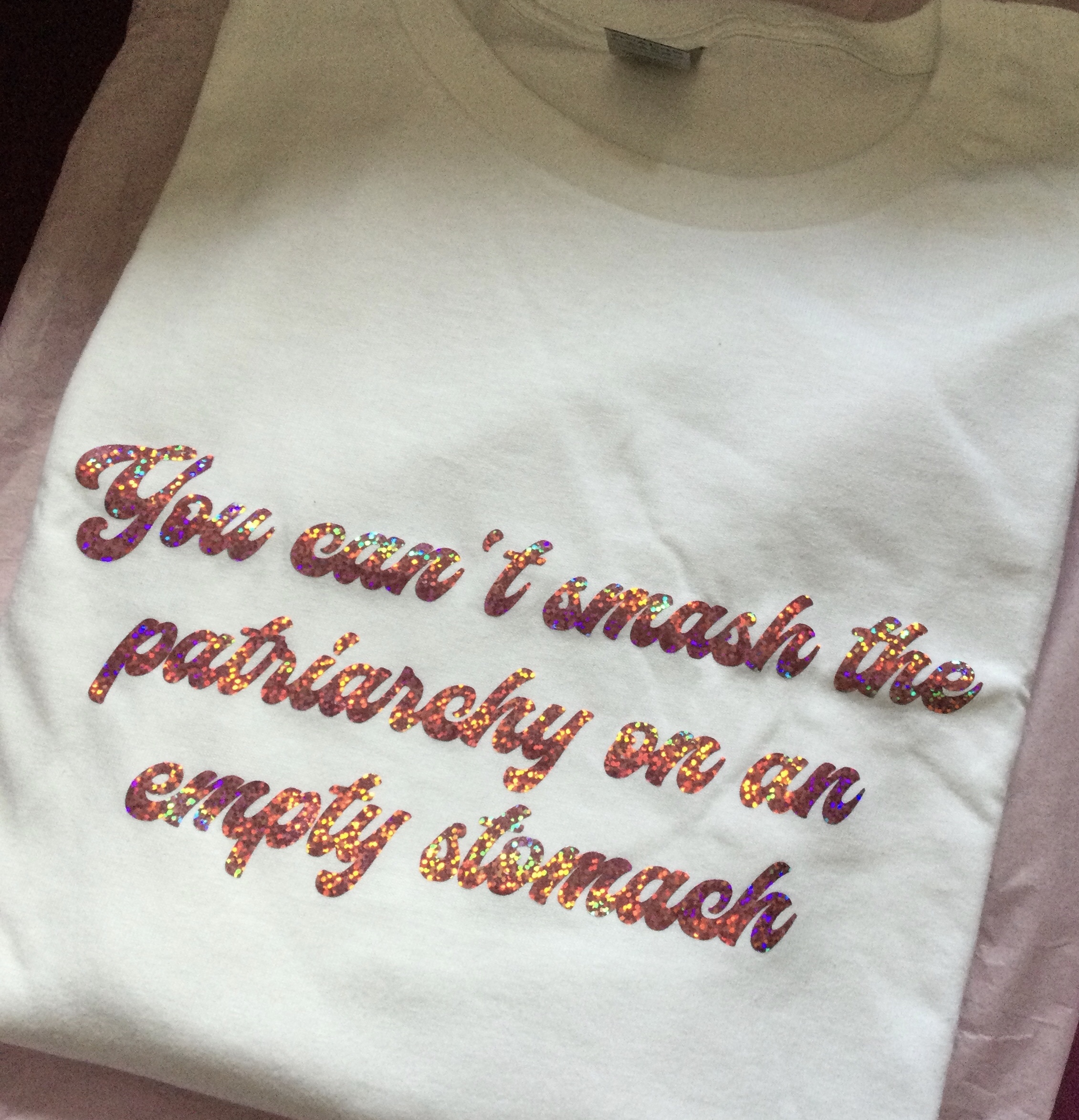My food intake was controlled as a child.
It wasn’t as simple as being a chubby kid who’d been put on a diet. There was more to it than that. There always is. There were times when money was tight, and food had to be stretched to the next pay day. I was apparently a terror and wouldn’t sleep if I’d had too much sugar when I was little, so my parents restricted it. But the impact was pretty much the same. I didn’t feel like I had enough to eat. I felt deprived. I felt hungry. I craved the things I wasn’t allowed.
The control extended to the school day. I was sent to school with a packed lunch instead of having school dinners. So all choice was removed.
Then there were the words used. Second helpings or snacks meant being called a pig. When I said I was hungry, I was told I wasn’t. The concept of good and bad foods was ever-present.

And so I suppose food became synonymous with control for me. Taking control of what I ate was a form of rebellion. Eating in secret was a form of rebellion. Eating forbidden foods was a form of rebellion. Throwing away my lunchtime sandwiches was a form of rebellion. I was choosing what and when I ate.
Except I wasn’t, was I?
I was a child, already stuck in a binge / restriction cycle. Skipping lunch then using my pocket money to buy chocolate on the way home. Hiding food in my room to eat when I needed comfort, when I needed not to feel. A child whose waking thoughts were dominated by food.
I wasn’t rebelling. I was ill. And I was a product of the society I grew up in.
And I grew up into an adult whose waking thoughts were still dominated by food. All those years, all those decades spent restricting, bingeing, purging, obsessing, hating myself, hating my body, wanting to be thinner, which I equated with more attractive, but unable to stop myself from stuffing my face. Ashamed, so deeply ashamed of my lack of control, disgusted that I had no willpower, distraught at my failure to be what society expected me to be.
Fast forward to June 2022, and this story starts to take on a new meaning. It becomes a cautionary tale. A parable of the patriarchy’s attempts to control females and marginalised groups, and their bodies. To keep them in their place. To re-assert and affirm its power. To shut us all up, because we are starting to shout too loudly and threaten the status quo.
In my fifty years on this planet I have never known a time when there have been such extreme attempts to control people’s bodies. Fatness has been categorised as a disease in its own right. Unprecedented numbers of people are having parts of their stomachs removed to meet society’s expectation of thinness. Others are going under the knife to appear younger or change their body shape to this year’s ideal. People are having their fat literally sucked out. People are taking pills with horrific side effects in an attempt to lose a couple of pounds.

Diet talk, and diet culture, are everywhere. It’s impossible to avoid. Calorie counting is now sanctioned and encouraged by the UK government in every environment where food is present. The mainstream and social media bombard us daily with advice on what to eat, what not to eat, when to eat, when not to eat, all to meet the ideal of a thin and healthy body.
But whose ideal are we trying to attain? Who benefits from all the money spent on the surgeries, pills, protein powders, supplements, and superfoods? And is all that time, effort and money actually making us any thinner and healthier?
Whose ideal? The ideal of those who hold the power, of course. Who benefits? Again, those who hold the power. The people who benefit are the diet companies, the drug companies, the beauty companies, and the rich, mostly white cis men who own them. And then in turn, the politicians and lawmakers they fund using their profits.
And is it making us any thinner and heathier? Study after study says no. We’re being sold lies. There is no effective long-term method of weight loss for 95-98% of the population. These methods are all much more likely to make people fatter in the long term. The most common result, weight cycling, increases the risk of a number of health issues, including the diabetes we’re all so desperate to avoid. And the impact isn’t just physical: psychological impacts include a massive rise in the number of eating disorders like mine.
But the benefits for the patriarchy aren’t just financial. People’s obsession with weight loss (and by people I mostly mean those identifying as female) is helping to ensure that those in power stay in power.
My eating disorder, my constant pre-occupation with food, took away my voice. I had nothing to say. I didn’t have space in my head to even figure out what I wanted to say. I didn’t believe in myself, didn’t have enough self worth to think that anyone would want to listen even if I did speak up. I was fat, useless, a failure, because I couldn’t control my eating. Even at the times when those around me considered me a success.
I know dieting isn’t an eating disorder. There are clear differences. But I’ve dieted and restricted, and I’ve learned about its impacts in recovery, and our bodies and brains fight back with hunger and preoccupation with food. We are hard-wired to seek out food in times of famine, and dieting is essentially a time of famine. Non-essential systems in our bodies shut down. We lose muscle mass. All of these things hold us back, keep us down. They rob us of strength and brainpower to think for ourselves and fight for our rights.
If our values are based entirely around the way we look; if our self worth is based on achieving an ideal body, yet the ideal is constantly changing and unachievable for the vast majority; if our brains and bodies are being starved of nourishment as we attempt to become that ideal; if our self-worth is purposely stripped away because we are failing our life’s purpose; how can we find the strength and capacity to examine and unpick what is going on in the world, to look for alternatives, and to fight back?
It’s time to fight back. Fundamental human rights are being eroded right now. The right to autonomy over our bodies, the right to refuge, to freedom of speech, to protest, to live and love according to our own values and beliefs.
And in order to fight back, we need to eat. Regularly and unapologetically. We need to accept that it is OK to take up space, as much space as our fed bodies need. We need to redefine success so it’s no longer about shrinking, and becomes about growing. About finding new values and aims, about finding our voices, about figuring out who we want to be, regardless of what we weigh.
These were the principles of my eating disorder recovery. They have served me well, and helped me learn. They have given me self worth, a voice, and the courage to use it.
Those principles taught me that eating is an act of rebellion, not in the way I thought it was as a child. No, it’s much broader and more powerful than that. Because you can’t smash the patriarchy on an empty stomach. And that’s why the patriarchy wants to you stay hungry.
